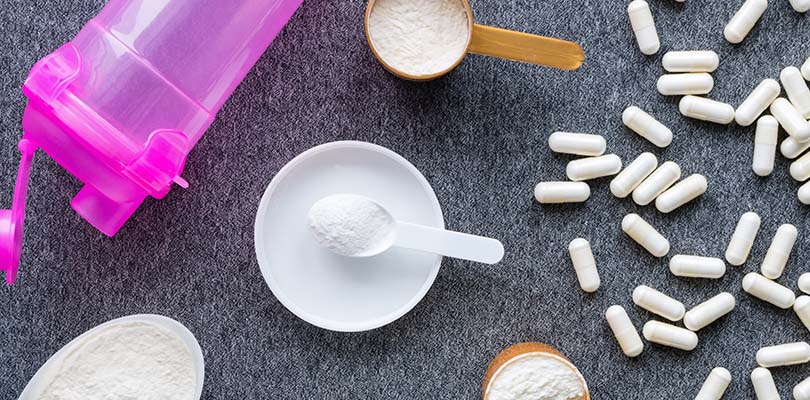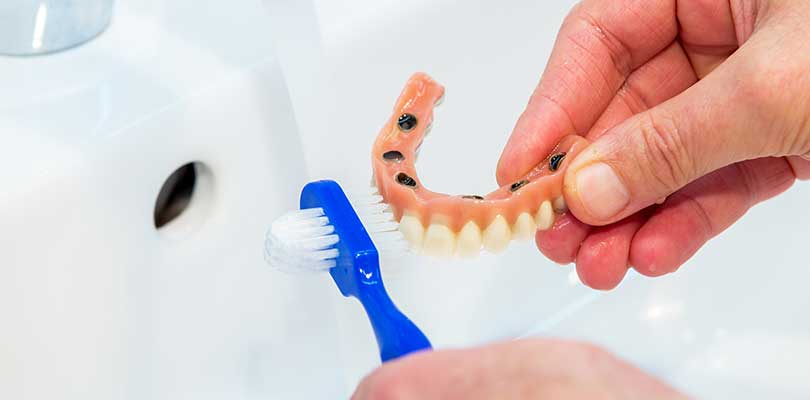Workout Supplement Guide: What You Need to Know
Now that you have a workout routine set for losing weight or building muscle, you're probably wondering what next steps you can take to help you achieve your goals faster or improve your overall fitness. You already know what to eat before a workout and how many calories you should eat in a day, so your obvious next step is trying protein powder or a workout supplement.
In today's day and age, you've probably seen numerous protein powders and workout supplements on the market. Deciding on if you need a protein powder or a workout supplement can an overwhelming experience. First, this workout supplement guide will teach you about what both protein powder and workout supplements are, how they work, and then help you determine which option is better for your active lifestyle.
What Is Protein Powder?
Protein is one of the most important nutrients in our diets. When we eat protein, it is broken down by digestive enzymes into smaller molecules called amino acids. Amino acids are the building blocks of life. They are vital for the healthy growth and repair of muscle and other tissues within the body.
They also help us to make enzymes, hormones, and other important substances. Our bodies can synthesize some amino acids, but we need to get the others from food. This is why it is essential to have enough protein in our diets.
The average man needs to eat around 56g of protein daily, and the average woman needs around 46g. Protein can be found in many different foods including meat, fish, eggs, dairy product, nuts, beans, and pulses.
For most people, it is easy to get enough protein by eating a well-balanced diet. However, athletes and bodybuilders have a higher protein requirement, and that’s where protein powders come in.
How Do Protein Powders Work?
Athletes need extra protein to help them build muscle mass more quickly and allow their bodies to recover fully from strenuous exercise. A high protein intake is especially important for people doing bodybuilding or strength training.
These people may need up to twice as much protein as the average person, making it difficult to get enough from dietary sources alone. Protein powders are a simple and convenient way to fill this gap, ensuring that athletes have all the protein they need in order to stay healthy and fit.
Protein powders can be mixed with water, milk, or fruit juice, or added to smoothies to increase their protein content.
In order for protein powders to be effective, you will need to calculate your own personal needs. Use too little, and it will be ineffective, but use too much and you could risk liver or kidney damage, and increase your chances of developing osteoporosis later in life.
It is recommended that you do not consume more than 1.6g of protein per kilo of body weight (that’s 0.73g per pound) in a day, or more than 30g in a single sitting. It is also advisable to speak to a dietician before starting to use protein powders. They are designed to complement a healthy balanced diet, not to replace it.
In addition to athletes, protein powders may also benefit elderly people who do not get enough protein from their diets due to a decreased appetite. They are also often used by people who want to lose weight. Protein is a useful weight-loss tool as it makes you feel fuller for longer, which can help to reduce snacking between meals.
For athletes, the best time to use protein powders is before, during, or after a workout. For weight loss, it is best to have it alongside meals.
Diagnosis is often difficult due to a wide range of symptoms. Here are some early symptoms of Lupus to be aware of.
What Are Workout Supplements?
Workout supplements usually come in tablet or capsule form. They contain a variety of different ingredients and are designed to boost performance during exercise, build muscle mass, and burn fat more effectively.
Some of the most common ingredients in workout supplements are:
- Creatine
- Caffeine
- Amino acids
- Sodium bicarbonate
- Nitrates
They may also contain vitamins and minerals to help improve athletes’ overall health and fitness.
How Do Workout Supplements Work?
Workout supplements are normally taken before exercise. Exactly how they work will depend on which ingredients the product contains.
Creatine is a very common ingredient in workout supplements and is sometimes also added to protein powders. Creatine is a molecule which is widely believed to help to increase strength and build muscle fast.
Caffeine is another common ingredient. It is used for its stimulant effect, which may help to boost energy and endurance while increasing mental focus during workouts.
Amino acids are essential for building strong, healthy muscles. Some of the amino acids most commonly included in workout supplements include citrulline which helps improve blood circulation to boost performance and beta alanine which helps to fight muscle fatigue.
Sodium bicarbonate is an ingredient which can be found in most kitchens but is also often included in workout supplements. It is alkaline in nature and helps to prevent acid build-up which can cause muscle cramps.
Nitrates are chemicals which are naturally found in many foods including spinach and beetroot. In the body, these are converted into nitric oxide, a molecule which relaxes the blood vessels to improve blood flow.
How to Choose the Right Protein Powder or Workout Supplement for You
Choosing the right protein powder or workout supplement can be confusing. To make matters worse, they are often expensive, meaning that choosing incorrectly could damage your bank balance as well as your health.
There are many different protein powders on the market. One of the most common is whey protein. This is a complete protein, meaning that it contains all the amino acids you need to support your training regime. However, whey protein is derived from milk, meaning it is not suitable for vegans or people who are lactose intolerant. There are also many plant-based products available, with soy and pea protein among the most popular.
Some protein powders contain added minerals and vitamins giving them an extra nutritional boost. However, some also contain sugar, artificial flavorings, and thickeners. Some are also very high in calories, a major drawback if you are trying to lose weight. The protein content can also vary greatly between products, so always read the label carefully to avoid disappointment.
Choosing the perfect workout supplement can be a minefield too. These products are classed as food supplements and are therefore not well regulated by the government. Choose a reputable brand and read plenty of reviews before deciding on which product is most suitable for you.
Finally, if you suffer from any health conditions or take prescribed or over-the-counter medicines, consult your doctor before using protein powders or workout supplements. They will help you to choose a product which is both suitable and safe for you.
Hopefully, this workout supplement guide has helped you to decide on which workout supplement is best for your needs and lifestyle.







